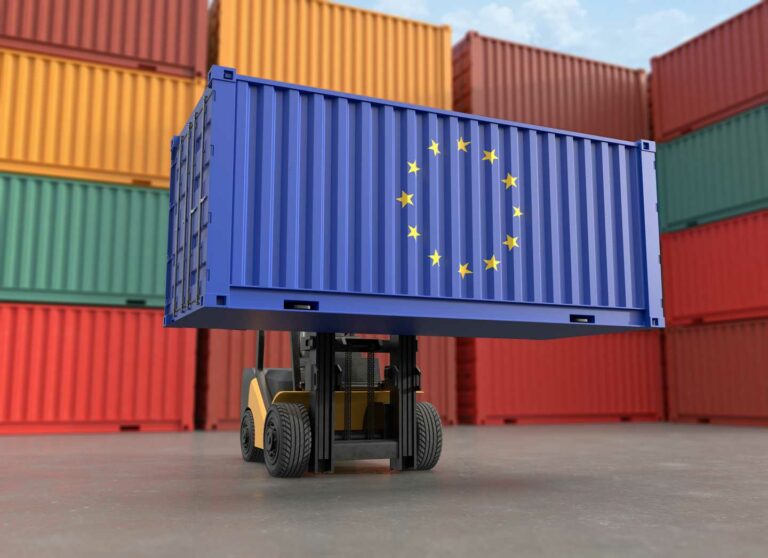What are the new rules on posting drivers in the road transport sector which entered into force on 2 February 2022?
As announced on 31 July 2020 with the publication of the Official Journal of the EU, the measures included in the reform of the mobility package entered into force on 2 February 2022, thus impacting transport professionals.
Indeed, this new regulation brings profound changes in relations to the rules governing the road transport sector. These new rules are intended in particular to combat fraud and illegal work in order to protect lorry drivers.
Directive 2020/1057 (known as “LEX SPECIALIS”) (in French) of the European Parliament and the Council dated 15/07/2020 includes specific measures for the posting of lorry drivers. It is one of the important components of the “Mobility Package I”.
What is the scope of this new directive?
Who is affected by the directive?
This directive applies to all drivers in the road transport sector for goods or passengers.
Exceptions to this directive
A driver is not considered to be posted, which means that they have no posting declaration to make via the new European portal, in the following cases:
- When carrying out bilateral operations (bilateral transport of goods);
- When transiting through a Member State without loading or unloading goods.
What are the new features of this new regulation in terms of the posting of road hauliers?
Since 2 February 2022, the following measures have entered into force:
- All posted drivers will have to be paid according to the remuneration rules of the host Member State where they carry out their activities when these fall within the scope of this regulation;
- Abolition of the designation of a representative in the host country who could speak the language of the authorities in the event of an inspection of the posting company and the posted driver;
- Abolition of the posting declaration/certificate via the national systems in the host country where the posting takes place (SIPSI for France);
- Creation of a new European portal with the aim of European harmonisation of administrative formalities via a single secure portal connected to the Internal Market Information System (IMI). This portal will only be accessible from 2 February 2022.
Comments:
- The national systems will no longer be applicable from 2 February 2022 for posted drivers falling within the scope of the harmonised European system;
- Posting certificates made via the national systems remain valid only until 2 February 2022. However, the certificates and acknowledgments of receipt will remain accessible on the national systems after this date to serve as proof in the event of a dispute over a previous inspection;
- It is mandatory to make a new posting declaration for all postings in progress on 2 February 2022 via the new European portal from 2 February 2022.
Find out more: Mobility package: reform of the road transport sector (in French)
What is the purpose of the new European portal?
For any request for the posting of workers, a prior declaration must be submitted via the new European portal.
This portal aims to:
- Be a management tool to allow the operator of posted drivers to easily consolidate all the mandatory documents in the event of an inspection by the competent authorities of the host country via notifications directly received in their personal account. Each company has only one access account, but can have several users who will manage the company account. Each user has the same permissions.
- Facilitate inspections by the competent authorities of the host country in direct contact with the competent authorities of the country of establishment. These inspections will only be carried out through the portal by sending notifications.
- Facilitate multilingual exchanges between, on the one hand, the company carrying out the posting and the inspection authorities and, on the other hand, between the authorities themselves. The portal provides a multilingual form that allows a declaration to be submitted in any of the 24 official EU languages. The company that is going to declare its posting can choose its language and is not obliged to choose to declare in the language of the Member State where the posting takes place. The inspection authority located in the host Member State may have the declaration translated into the language of its choice. Similarly, any communication made via the portal will be automatically translated into the desired language, whether for the company employing the driver or for the inspection authorities of the Member State of establishment or the host Member State.
What are the employer’s obligations?
What are the employer’s reporting obligations for posting drivers?

The operator (employer) of a posted driver is obliged to submit a posting declaration for a period which can range from 1 day to a maximum of 6 months with the issuance of a QR code to the competent authorities of the Member State in which the driver is posted by the start of the posting at the latest via the single European portal. Even for a posting period of 24 hours, a declaration must be made to cover this posting.
One declaration must be submitted per driver. It is therefore possible to make; either a 6-month declaration for a driver with all the postings they will make within this period, or to make a single declaration for a driver per posting.
Please note: if a driver has to be posted to several countries, the posting company must make a declaration for each country.
To sum up, you are therefore requested to make a declaration per driver, per country and per posting (knowing that the posting company can register several postings if it has already planned the postings for this driver in the said country over a period of 6 months).
This posting declaration must contain the following information:
- The identity of the operator;
- The contact details of a transport manager or other contact person in the Member State of the establishment;
- The driver’s identity, residential address and their driving license number;
- The start date of the driver’s employment agreement and the law applicable to this agreement;
- The planned dates for the start and end of the posting;
- The license plate of the motor vehicles;
- The type of transport: goods/people/international/cabotage.
The portal makes it easy to modify, add, update or correct information contained in a declaration. It is also easy to copy elements of a declaration when creating a new declaration or renewing one in order to avoid wasting time entering a completely new declaration containing broadly the same information. Now, only the new elements need changing.
Note: the operator has, according to the posting directive, a period of 8 weeks, following their request, to send all the documents necessary for the posting of road hauliers.
In the event of non-compliance with this deadline, the inspection authorities of the host country will notify the authorities of the company’s country of origin. The latter will contact the transport company to obtain the missing documents.
What are the employer’s obligations towards the carrier?
The operator is obliged to ensure that the posted driver has the following documents available in hard copy or electronic format:
- A copy of the posting declaration containing a QR code;
- Proof of transport permits;
- Tachograph records.
What are the employer’s obligations in the event of an inspection?
In the event of an inspection by the competent authorities of the host country, the operator is required to transmit via the single portal all the following mandatory documents:
- Proof of transport permits;
- Tachograph records;
- Documents relating to the posted driver’s remuneration for the posting period in question;
- The employment contract or any equivalent document, time sheets relating to the driver’s work;
- Proof of payment.

The European Commission and the European Labour Authority do everything to regularly provide the most detailed information possible.
ASD SPW will assist you with this change in regulations, please contact our experts for more information.
In addition, with its online posting service, ASD SPW offers to take care of all your obligations relating to the posting of workers in many sectors of activity such as construction, viticulture or even trade. Thus, with this platform specially designed for the posting of employees, manage your administrative procedures such as:
- SIPSI or BTP card requests;
- Management of the posting of employees;
- Storage of mandatory documents;
- Follow-up posting assignments;
- Get information and reminders about regulatory failings of the posting to avoid any sanctions.




